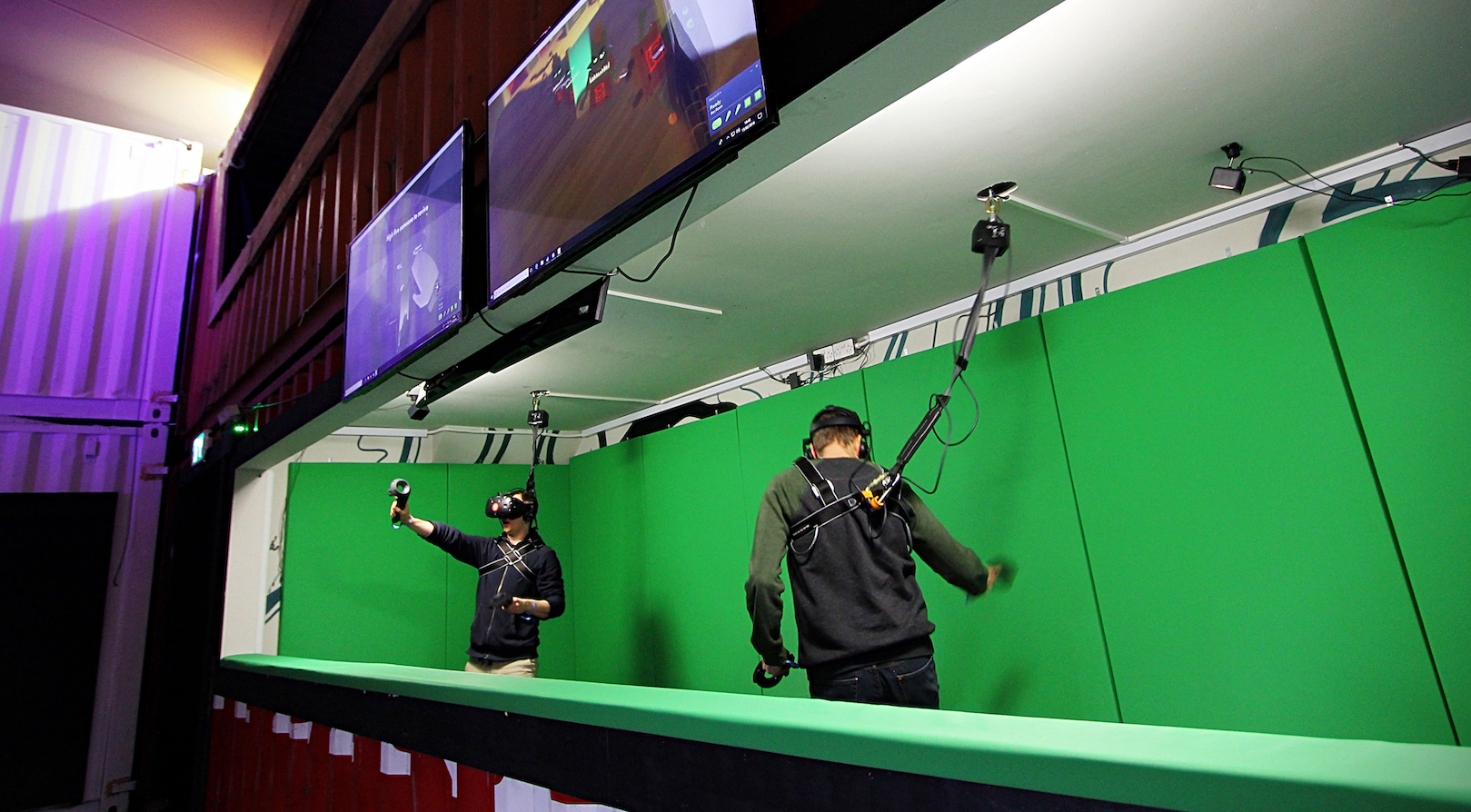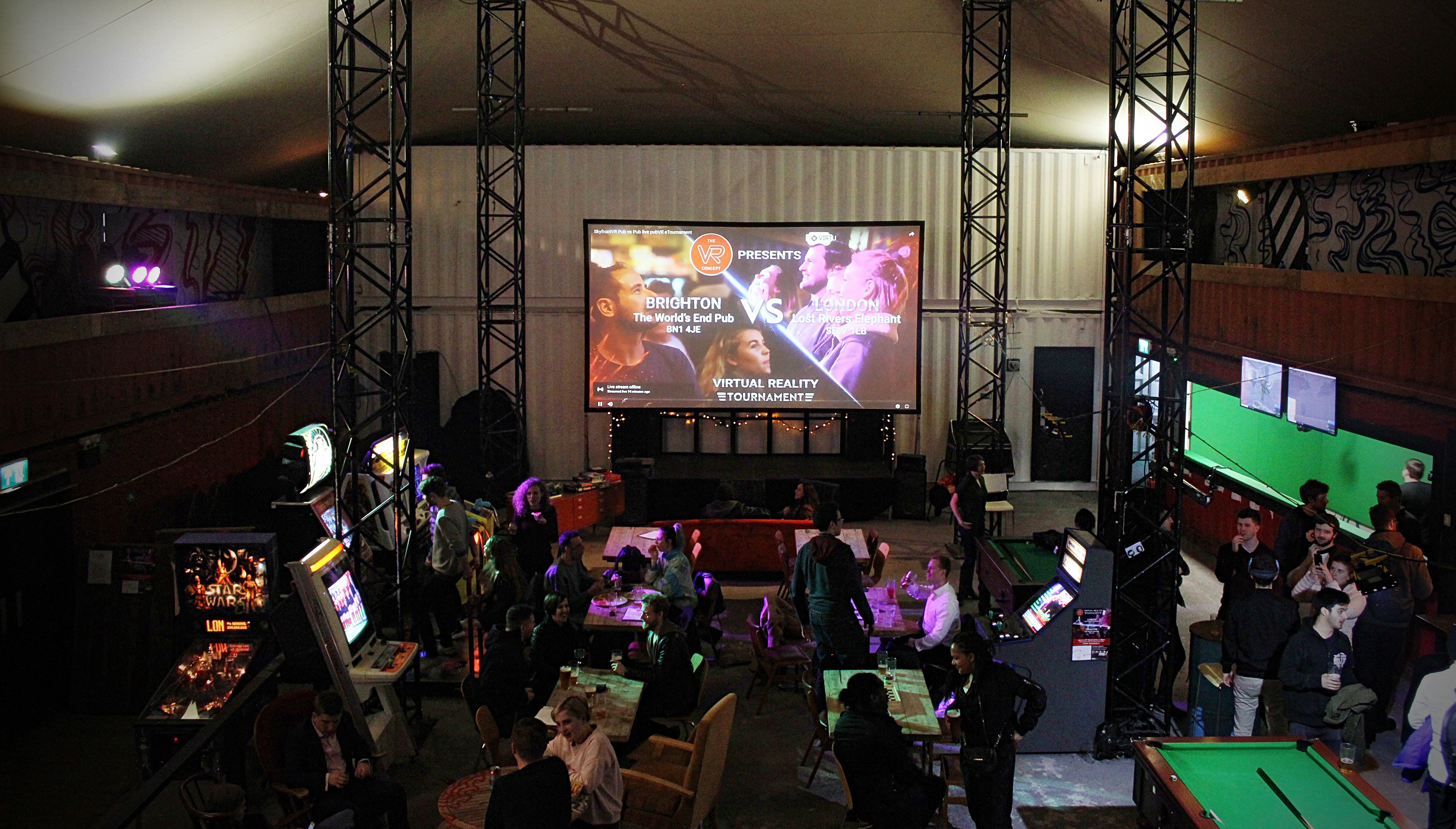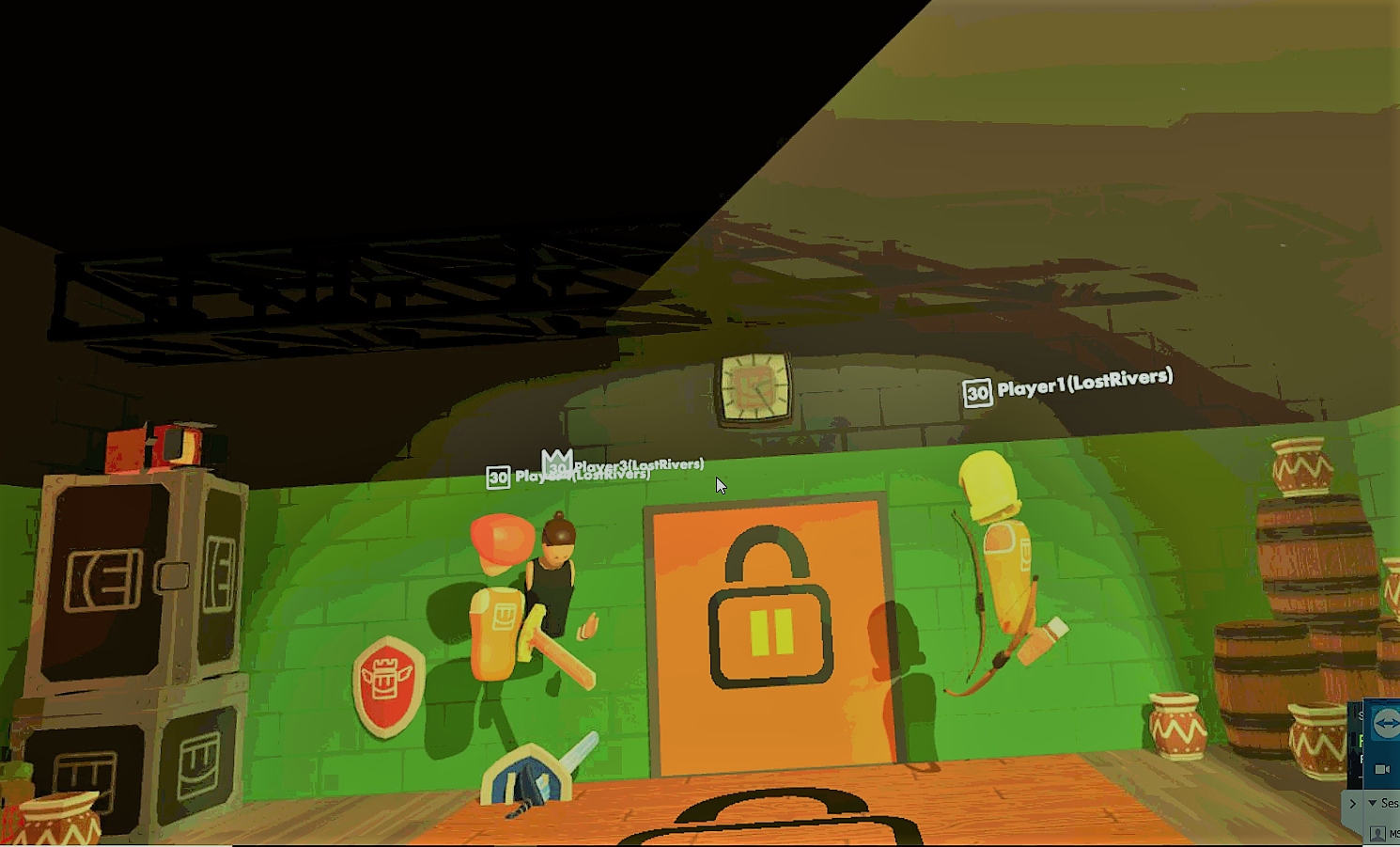Beer goggles: why your local pub could be the future of virtual reality
Those beer goggles are due for an upgrade

Sign up for breaking news, reviews, opinion, top tech deals, and more.
You are now subscribed
Your newsletter sign-up was successful
It’s no secret that virtual reality has an isolation problem.
The very appeal of VR experiences – immersion in simulated worlds – requires a successful detachment from your surroundings. Light must be blocked out, outside noise should be muffled, and god help anyone caught within swinging distance of your controllers.
Despite the increasing visibility of VR technology, and waves of hype and venture capital ensuring a steady release schedule for standalone headsets, the very act of wearing one remains anti-social. Even if you're taking part in a multiplayer experience, the chances are you're playing against someone in another corner of the world.
Some modern arcades, however, are looking to learn from the success of the retro gaming bar: drinking establishments stocked with anything from a battered pinball machine to Street Fighter cabinets and arcade shooters. By focusing on the social, multiplayer aspect of gaming, they think VR can gain a foothold in today’s entertainment scene.
The rise of the VR arcade

Putting high-end VR devices in the hands of nightly punters, who may have enjoyed several beverages before slipping on their headset, naturally causes its own problems. For The VR Concept, it required a major rethink of the way we think about virtual experiences.
Simply put, The VR Concept delivers VR experiences on the premises of existing bars and pubs. The company was founded back in 2016 by Anthony Nixon and Oli Lane, after a chance meeting as landlord/tenant through room-rental site Airbnb.
While Nixon had worked previously in IT infrastructure, Lane had a more sci-fi background in satellite propulsion. For both of them it was VR, rather than space, that presented the next frontier – and it was Nixon’s familiarity with the Four Thieves, his local pub in the London borough of Clapham, that led to their fledgling company setting up their first VR experience within the venue.
Sign up for breaking news, reviews, opinion, top tech deals, and more.
Just over 18 months later, and their chain already makes up 50% of all VR arcades in the capital, using the stable footfall of established pubs to drum up interest and get their VR wares in the hands of a wide spectrum of demographics, largely using the technology for the first time in a familiar and comfortable setting.
The result is a VR user base that cuts across the pub-going population, and results in an encouraging 50:50 gender split across players.
As co-founder Lane puts it: “Compared to a lot of arcades, it’s not a nerdy place to come.
“If you want to impress a friend, or a date, you’re not taking them to a gadget showcase. You’re going to a cool bar.”
A social experience

With four venues operational across London and Brighton, The VR Concept have rapidly expanded at a time where smaller, pop-up VR ventures are struggling to find an audience.
Their latest site saw them take up residency at Lost Rivers Elephant, in the London borough of Elephant & Castle. The venue stocks four HTC Vive headsets and accompanying Deluxe Audio Straps, tied to the ceiling by an extendable seatbelt that prevents players roaming too far. The effect is very Ready Player One – a film they openly credit with the growth of their user base over the past few months.
The experience of playing is very much what you’d expect from the Vive, which the founders chose for its crisp 2160 x 1200 display (1080 x 1200 pixels per eye) and precise room-scale motion tracking. (Though the Oculus Rift has an equivalent resolution, it only implemented room-scale tracking midway through 2017.)

Despite the processing power needed to run numerous Vive’s in tandem, there is no noticeable input lag, and the games run impressively smoothly – largely thanks to a hefty PC rig capable of outputting 1500W when running four players concurrently. That's with some help from machines kitted out with Intel’s top-of-the-range i9 processor, Nvidia’s GTX 1080 Ti graphics card, and some very flashy neon fans keeping the temperature under control.
You’ll also find a number of sensible home improvements to trailing cables, making use of a chest strap and harness that keeps the Vive’s wires from tangling around you – while the ceiling tethers and thickly-padded walls should stop any drunken clientele from hurting themselves or damaging the equipment.
“When we first opened we were losing a controller a week,” Lane admits.
VR as a spectator sport

The arcade’s nascent success has lain in treating VR in the same way other large-scale venues would treat a major sporting event. In-game footage can be streamed live to a projector screen, and the online infrastructure built across The VR Concept’s four venues allows online tournaments and PvP play.
Players are in full view of the bar’s other punters while playing, allowing anyone to watch their friends grope around in VR while sipping on a drink. Crucially, it’s also easy to ignore if that’s not what brought you inside.
Games like Skyfront allow up to four-a-side action, combining jetpacks with FPS-shooting for satisfying and deeply chaotic play sessions. Quest offers collaborative gameplay for friends or family through an adorable-but-deadly cartoon dungeon (below), while Serious Sam offers a two-player wave shooter for fans of the bombastic series.

If you want to impress a friend, or a date, you’re not taking them to a gadget showcase. You’re going to a cool bar.
Oli Lane, founder The VR Concept
This is cutting-edge tech with a gently casual bent, operated as successors to the coin-op cabinets still found in countless bars around the world, and which – incredibly – can still cost more by-the-minute than an hour-long VR experience (£39 per person across The VR Concept's venues).
While VR in general struggles to shake off its public image as an isolated, niche interest, modern arcades may be able to tackle this problem head-on: by bringing VR to social spaces and ensuring players and punters feel connected to the experience.
There are other notable VR sites worldwide attracting interest, including a VR bar in Vienna and a high-profile theme park in Guizhou, China that opened its doors this month. Even as this nascent technology struggles to gain a foothold in everyday use, these ventures point to a bright future for VR as a normalised, ultra-social experience.
Co-founder Lane is optimistic about the future of VR, in his sector at least: “What we’re doing with this is providing people with interesting, fun stuff to do on a night out.
"The question isn’t ‘do we see interest in VR waning’. It’s ‘do we see interest in experiences waning’. And absolutely we don’t.”

Henry is a freelance technology journalist, and former News & Features Editor for TechRadar, where he specialized in home entertainment gadgets such as TVs, projectors, soundbars, and smart speakers. Other bylines include Edge, T3, iMore, GamesRadar, NBC News, Healthline, and The Times.